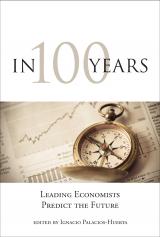There’s an interesting review by Molly Worthen of a new book by George Marsden, [amazon_link id=”B00IHGVPG2″ target=”_blank” ]The Twilight of the American Enlightenment: The 1950s and the Crisis of Liberal Belief[/amazon_link]. I suspect the review is more interesting than its subject – at least, I’m not really tempted to read a book aiming to persuade me that faith-based arguments ought to have the same status in public policy debate as reason-based arguments.
I’m more interested in the Walter Lippmann book mentioned in Prof Worthen’s review, [amazon_link id=”B00E3255JW” target=”_blank” ]Essays in the Public Philosophy[/amazon_link], having read his [amazon_link id=”1440047510″ target=”_blank” ]Liberty and the News[/amazon_link] relatively recently. It sounds like it prefigures Daniel Bell’s [amazon_link id=”B00BR5IEZ0″ target=”_blank” ]Cultural Contradictions of Capitalism[/amazon_link]. Does the individualist, market system undermine the social norms and values that make it work? How does the application of reason to public policy questions sit with the role of emotion and belief in our modern democracies? And – a new question as we learn more and more from cognitive science – are we kidding ourselves about the role of reason anyway?
[amazon_image id=”B00IHGVPG2″ link=”true” target=”_blank” size=”medium” ]The Twilight of the American Enlightenment: The 1950s and the Crisis of Liberal Belief[/amazon_image]
[amazon_image id=”B00BR5IEZ0″ link=”true” target=”_blank” size=”medium” ]The Cultural Contradictions Of Capitalism: 20th Anniversary Edition by Bell, Daniel Anniversary Edition [Paperback(1996)][/amazon_image]
In related reading, Richard Marshall of 3AM Magazine has an interview with philosopher Jeremy Sheamur about Popper and Hayek. I was intrigued by the suggestion that Hayek thought of markets as institutions, albeit organic rather than designed – very far from the received wisdom of markets as a free-for-all, a view of course often attributed to Hayek.
The book of the interviews, [amazon_link id=”0199969531″ target=”_blank” ]Philosophy at 3am[/amazon_link], is due out soon. One to look forward to.
[amazon_image id=”0199969531″ link=”true” target=”_blank” size=”medium” ]Philosophy at 3:AM: Questions and Answers with 25 Top Philosophers[/amazon_image]

